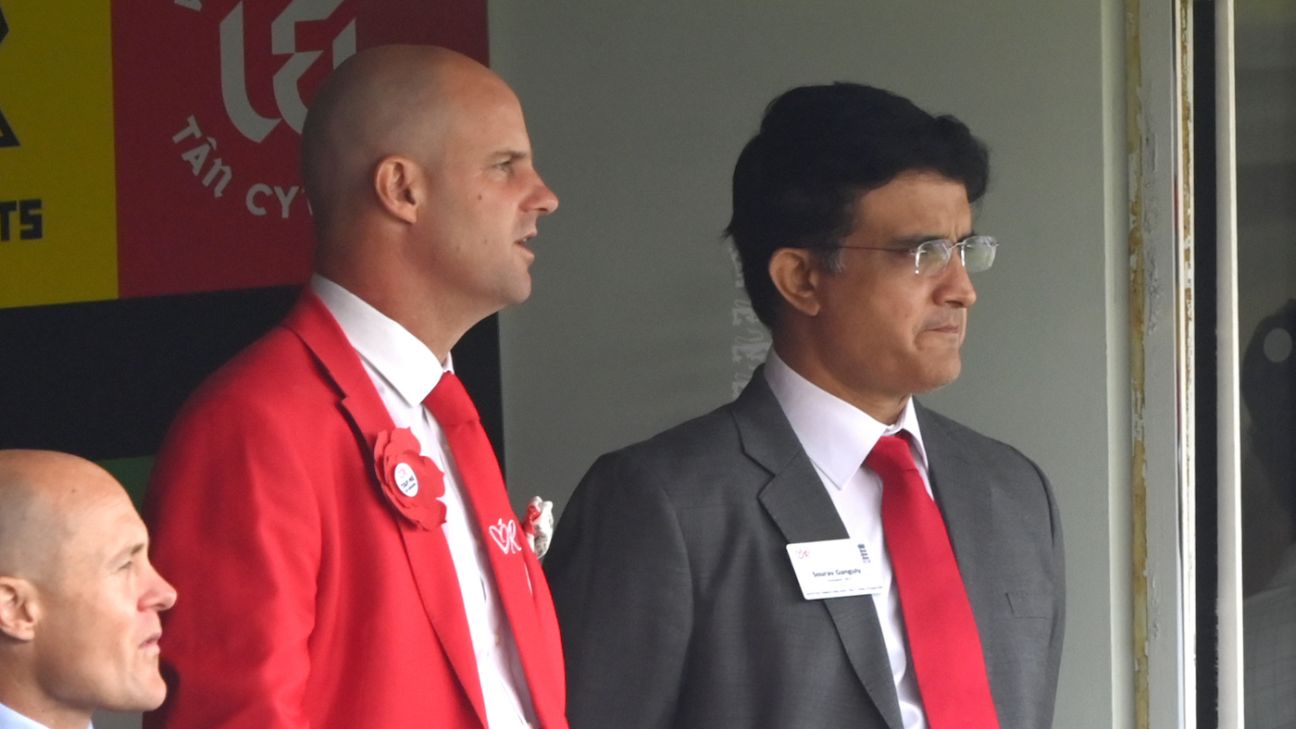Andrew Strauss calls on ECB to be ‘ambitious, bold and radical’ in resetting red-ball fortunes
Strauss’ cricket committee has recommended “full independent review” into county game
Strauss, who took up his position on Wednesday following the sacking of his predecessor Ashley Giles, has set in motion a “full independent review into the role and structure of the domestic game”, amid concerns voiced by Joe Root, among others, that the county game as it stands is not preparing young English players for the rigours of Test cricket.
“Anyone that’s coming into this Test team at the minute is doing it in spite of county cricket, not because of county cricket,” Root, England’s captain, had said in the wake of the fifth-Test defeat in Hobart. “Some things need to change over a long period of time, but there are a lot of things that can change quite quickly that would hopefully make a significant impact.”
“I think it’s very fair to say that you cannot lump the Ashes defeat on the domestic game’s door, it’s a contributing factor,” Strauss said. “I would say that I have spoken to a lot of people in and around the game over the last 18 months. I don’t think there are very many at all who believe the domestic structure is best suited to international cricketers.
“A lot of the analysis when you look at the international and domestic game backs that up as well. We need to be ambitious, we need to be bold and be prepared to be radical in the solution to those issues.
“What we need to do is best replicate the challenges of international cricket in our domestic game. That is very clear and I don’t think anyone would disagree with that.”
Strauss’s recommendations were compiled in his recent role as chairman of the ECB’s cricket committee, which considered the end-of-tour report from Giles and Chris Silverwood, the outgoing head coach, and presented its findings to the board in the wake of an Ashes campaign in which England struggled to compete on equal terms at any stage of the five-match series.
“One of the recommendations that came out of the cricket committee review was for a full independent review into the role and structure of the domestic game, with particular focus on its suitability to produce international cricketers,” Strauss said.
“That has gone to the board. We are reaching the next steps on that, which are, if it takes place, what are the terms of reference for that group, and the make-up of the group.”
In his previous stint as England men’s director, from 2015 to 2018, Strauss played a key role in establishing the framework for Eoin Morgan’s white-ball team to rise from the ignominy of that year’s World Cup to win the trophy on home soil four years later.
While the fruits of that project were plain to see, the longer-term impact on the Test side have become apparent in recent seasons. But Strauss is adamant that England has the wherewithal to thrive across all formats at once, much as Australia have done this winter with their victory at the T20 World Cup ahead of the Ashes.
“The focus of that white-ball reset was to try and get the balance between the formats, because prior to that the majority of our focus was on the red-ball game,” he said. “The game is moving more towards white-ball opportunities, the best cricketers in this country are playing a lot of white-ball cricket both in the summer and the winter, so any red-ball reset has to take that into account.
“It isn’t about just what happens in the England environment. It is much broader than that. And that’s what it’s going to take on the red-ball side. But, by the way, there is no reason why the men can’t be the best team in both white and red-ball cricket.
“We’ve seen it from other teams in the past. India are very strong in both formats. Australia just won the T20 World Cup. We need to have a seat at that table and our ambition has got to be better than both those teams.”
Andrew Miller is UK editor of ESPNcricinfo. @miller_cricket
For all the latest Sports News Click Here

